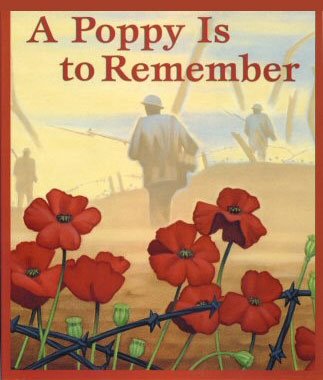Bob Oldfield
Published on 3 Nov 2011A Remembrance Day slideshow using Mark Knopfler’s wonderful “Remembrance Day” song from the album Get Lucky (2009). The early part of the song conveys many British images, but I have added some very Canadian images also which fit with many of the lyrics. The theme and message is universal… ‘we will remember them’.
November 11, 2017
Mark Knopfler – “Remembrance Day”
In memoriam
A simple recognition of some of our family members who served in the First and Second World Wars:
The Great War
 Private William Penman, Scots Guards, died 16 May, 1915 at Le Touret, age 25
Private William Penman, Scots Guards, died 16 May, 1915 at Le Touret, age 25
(Elizabeth’s great uncle)- Private Archibald Turner Mulholland, Argyll & Sutherland Highlanders, mortally wounded 25 September, 1915 at Loos, age 27
(Elizabeth’s great uncle) - Private David Buller, Highland Light Infantry, died 21 October, 1915 at Loos, age 35
(Elizabeth’s great grandfather) - Private Harold Edgar Brand, East Yorkshire Regiment. died 4 June, 1917 at Tournai.
(My first cousin, three times removed) - Private Walter Porteous, Durham Light Infantry, died 4 October, 1917 at Passchendaele, age 18
(my great uncle) - Corporal John Mulholland, Argyll & Sutherland Highlanders, wounded 2 September, 1914 (shortly before the First Battle of the Aisne), wounded again 29 June, 1918, lived through the war.
(Elizabeth’s great uncle)
The Second World War
- Flying Officer Richard Porteous, RAF, survived the defeat in Malaya and lived through the war
(my great uncle) - Able Seaman John Penman, RN, served in the Defensively Equipped Merchant fleet on the Murmansk Run (and other convoy routes), lived through the war
(Elizabeth’s father) - Private Archie Black (commissioned after the war and retired as a Major), Gordon Highlanders, captured at Singapore (aged 15) and survived a Japanese POW camp
(Elizabeth’s uncle) - Elizabeth Buller, “Lumberjill” in the Women’s Land Army in Scotland through the war.
(Elizabeth’s mother) - Trooper Leslie Taplan Russon, 3rd Royal Tank Regiment, died at Tobruk, 19 December, 1942 (aged 23).
A recently discovered relative. Leslie was my father’s first cousin, once removed (and therefore my first cousin, twice removed).
For the curious, the Commonwealth War Graves Commission and the Royal British Legion provide search engines you can use to look up your family name. The RBL’s Every One Remembered site shows you everyone who died in the Great War in British or Empire service (Canadians, Australians, New Zealanders, South Africans and other Imperial countries). The CWGC site also includes those who died in the Second World War.
In Flanders fields the poppies blow
Between the crosses row on row,
That mark our place; and in the sky
The larks, still bravely singing, fly
Scarce heard amid the guns below.We are the Dead. Short days ago
We lived, felt dawn, saw sunset glow,
Loved and were loved, and now we lie
In Flanders fields.Take up our quarrel with the foe:
To you from failing hands we throw
The torch; be yours to hold it high.
If ye break faith with us who die
We shall not sleep, though poppies grow
In Flanders fields.Lieutenant Colonel John McCrae, MD Canadian Army Medical Corps (1872-1918)
Vimy Ridge Heaven to Hell – Full Documentary
Bobmarliist
Published on 8 Feb 2013
QotD: Wearing the Red Poppy
One hundred years is a short period in history but a long one in human lives and memories. It marks a point when perspective is gained on tragic events: for one, thing no-one who participated in them is still alive. Perspective changes meaning and alters commemoration. It took, for example, white Southerners that long to stop voting Democrat because Abraham Lincoln had been a Republican. Today in Spain we see the quiet rise of memorials for the losses of the Spanish Civil War. Time takes its toll of grievances and opens new avenues of generous remembrance.
Perhaps that’s it. The very length of time since the original Armistice – the eleventh minute of the eleventh hour of the eleventh day of the eleventh month in 1918 – is the reason we still wear red poppies. The conflicting emotions that originally surrounded remembrance – the grief, the survivors’ guilt, the sense of waste and futility, the bitterness of victory – have all washed away. That leaves us with an awareness of a loss we cannot fully feel, and will thankfully never have to. But it’s a loss we can and must acknowledge.
It is a very British thing, the red poppy: a non-militaristic and utterly unexultant commemoration of the need for military force despite the costs. And it has a typically British origin in being multinational; its current form came into being when Earl Haig adopted a French woman’s design that copied an original red silk poppy created by an American woman inspired by a Canadian war poet’s elegy “Flanders Field”.
The poppy has in it the stoicism of the Londoners facing the Blitz – “London can take it”. We wear it to renew our individual and collective belief that Britain can take it.
John McTernan, “Does Jeremy Corbyn have any idea what Poppy Day is about?”, The Telegraph, 2015-10-22.



